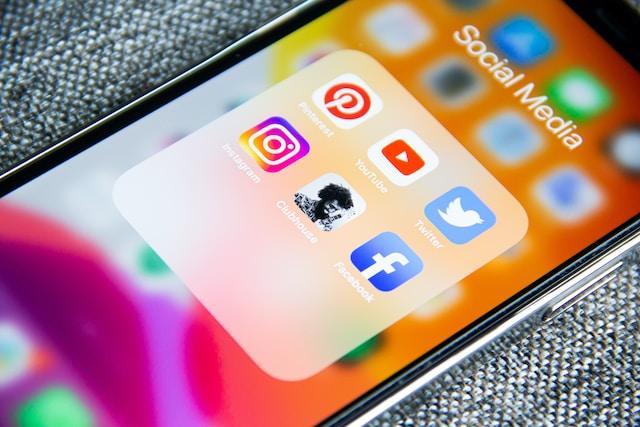It is “as if mobile phones were part of our body”. We must guard ourselves against the risk of becoming overly dependent on technological platforms.
Newsroom (19/08/2023 09:00, Gaudium Press ) Time passes, and what has happened remains and sheds light on the present. It is said that “History is the best teacher”. Within this near “history”, there were unique writers who were “ahead” of the times, writing things that they imagined would happen in the future.
The presence of mobile phones, for example, was predicted – I would not say by a prophet, but by a “futurist” – by one of the many writers of science fiction novels, this imaginary narrative genre about scientific or social advances taking place in the world. In 1947, René Barjavel (+ 1985) declared in a short film entitled “Television, the Eye of Tomorrow”: “We’re going to make miniature televisions, the size of a flashlight. It won’t be necessary to buy the newspaper any more, we’ll have everything on these little screens and we’ll be able to see them everywhere.” He even foresaw what the street scene would be like, with everyone trying to look at them, tripping over each other and suffering other complications that we already know well. Television was beginning to make its presence felt. On the advances of technology, he said: “It will even deprive us of freedom of choice, the individual will be erased and merge into a collective flesh and soul”.
Another prediction was described in “Fahrenheit 451” (1953), at the time, considered one of the most remarkable science fiction novels. It presents a world in which books are banned. The firemen, in order to prevent the “infection of thought”, are responsible for burning them, hence its title – the temperature at which paper burns. The visionary legend imagined a future without books, a world dominated by technology, replacing the family and, worse, making people live like robots.
The years passed and other screenwriters and films came along, albeit few, that announced the cruelty of the world we were beginning to live in. One of them, which won several Oscars, was “Network” (1976), written by American novelist Paddy Chayefsky, in which he analysed the power of television. In this film, a veteran presenter proclaimed: “Things are bad and everyone knows it, there’s a crisis, everyone is afraid… We’re sitting in front of the TV and the announcer tells us: Things are crazy… The only truth you hear is the truth that is broadcast. Television is the gospel, it has the most impressive power that exists in our heartless and dirty world, you sit there, day after day, night after night, people of all ages, colours and creeds. It’s the only thing you know, you do everything the television tells you, you dress like it tells you, you eat what it tells you, you raise your children according to its rules, and you even think like it. It is mass madness.”
The days of the presence of television have passed, giving rise today to the omnipresence of mobile phones, “as if they were part of our bodies”. If you think back to the characters in 90’s films, they often showed off their “look” with a cigarette in their hand. Now, everyone has a mobile phone in their hand. In the same way that the cigarette worked as an anxiolytic, relieving and reviving, the mobile phone has begun to replace it, with the characteristic of being a new form of social submission, growing every day.
A third of the time a person spends awake
In 2021, its use grew to an average of almost 5 hours a day per person, that is, a third of the time a person spends awake, reaching the extreme of suffering “nomophobia”, the anguish of disconnection, the anxiety of being separated from the mobile phone or being without an internet connection, because “something essential in their lives” is missing.
Experts say that addiction to screens is progressing silently: we see screens everywhere on a daily basis, there’s no-one who doesn’t have one in their hands. It’s a means of communication that’s difficult to do without and, what’s more, it defines one’s personality…
The moment is lived through a single click; if the network slows down or is interrupted, despair ensues. The mobile phone takes up every free second. As the late Italian writer and philosopher Umberto Eco said: “You can’t do without technology, but it creates a sense of false accompaniment”.
The National Institutes of Health, Departments of Public Health and major universities in the United States and other countries state that intense use of social media is more likely to produce mental health problems; but that it is difficult to define the amount of time that use actually becomes harmful. It depends on each person or the things that affect them in their work or personal relationships. They link it to various psychological disorders: mood swings, anxiety, depression, insomnia, social isolation, physical and cerebral sedentariness, loss of ability to concentrate, etc.
Everyone is connected, but indifferent to those closest to them. Loneliness is greater than ever. “Bright flashes of pseudo-pleasure”, is how Justin Ronstein, the creator of the “like”, described the harmful effects of social networks. We are well aware of the system created to unconsciously connect users to devices, designs that use neuropsychological tricks to retain our minds’ attention and produce dependency.
Seeking to capture attention, they appear at every moment of the day. A “like” or a heart, for example, gives a feeling of pleasure and confidence, as if it were an injection of dopamine (the neurotransmitter of personal satisfaction); “scrolling” forces us to follow and keep seeing new information; the click to refresh the page; notifications, because most people don’t want to leave them pending. And finally, the next thing you know, you’ve reached 2am… staring at your mobile phone.
In this panorama, it’s striking that in Silicon Valley (California) – home to important companies in the digital industry – the children of executives are educated in technology-free schools. Knowing all this, they are cautious when it comes to looking after their own children.
We must beware of the risk of becoming hyper-dependent on technological platforms, behind which there is obviously an immense machinery of artificial intelligence laboratories. It is well said that the evil is not in the tools themselves, but in the way they are used. A domestic knife can be useful for cooking or … for killing. The digital environment is beneficial if we use it politely, knowing how to limit its presence among us, putting it at our service, and not being subject to it, because we have everything at … a simple click.
By Fr. Fernando Gioia, EP
Compiled by Sandra Chisholm

































